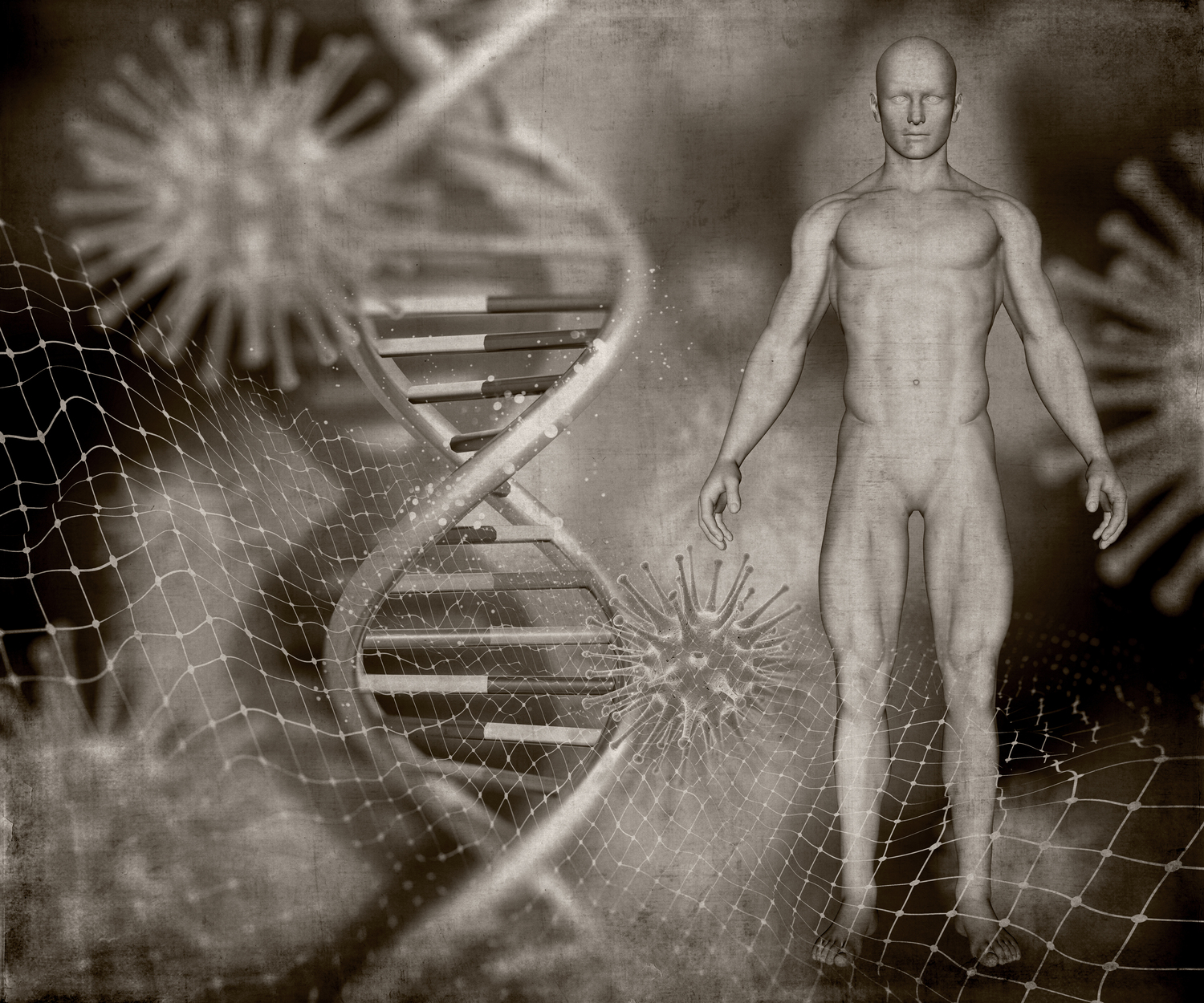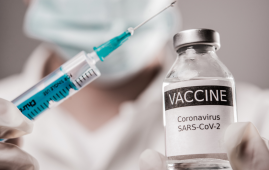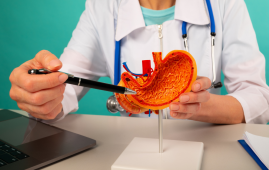

A huge statewide study in the United Kingdom has revealed the genetic cause of over 5,500 persons with rare genetic diseases, which will aid in diagnosis around the world. The Deciphering Developmental Disorders (DDD) study, a cooperation between the NHS and the Wellcome Sanger Institute, enrolled over 13,500 families from 24 regional genetics services across the UK and Ireland.
All of the families had children with significant developmental abnormalities that had gone undetected despite prior testing through their national health service and were most likely caused by a single genetic mutation. To find answers, the Wellcome Sanger Institute sequenced all of the genes in the children’s and parents’ genomes, a quest that is now ongoing. Using other high-tech approaches, the team was able to provide genetic diagnoses for over 5,500 youngsters in the study, which was just published in the New England Journal of Medicine. The diagnoses were in over 800 different genes, including 60 previously unknown illnesses found by the study. Approximately three-quarters of the diseases were produced by spontaneous mutations that were not passed down from either parent. The researchers also discovered that the chances of acquiring a diagnosis were lower in families of non-European heritage, emphasizing the importance of increasing research participation for under-represented populations.
Lead author Caroline Wright, Professor of Genomic Medicine at the University of Exeter, said, “Getting the right diagnosis is absolutely critical for families with rare conditions, which collectively affect around 1 in 17 people. Most of these conditions are genetic and can be diagnosed using the same genomic sequencing technology. The families in our study were desperate for answers, which can make a huge difference to clinical management and quality of life. We worked with hundreds of clinicians and scientists, as well as thousands of patients to try to find those answers. By sharing our findings, many more families in the future should get answers faster.”
Senior co-author Matthew Hurles, incoming Director of the Wellcome Sanger Institute and Honorary Professor of Human Genetics and Genomics at the University of Cambridge, said responsible data sharing was critical for making the diagnoses.
He explained, “Undiagnosed patients with rare genetic diseases have the most to lose if they are not given an opportunity to participate in research and if their data are kept in silos. Many of these diagnoses were only made possible by combining data across all diagnostic centers in the UK and Ireland. For some diagnoses, it was only through sharing data with international colleagues that it was possible to make a diagnosis. As these genomic technologies move into routine healthcare, ensuring that undiagnosed patients can still benefit from research on their data will remain incredibly important.”
Senior co-author Helen Firth, Professor of Clinical Genomics at the University of Cambridge and lead clinician for the study, emphasized the importance of the DECIPHER informatics platform for supporting the recruitment of patients and the return of diagnostic findings to clinical teams.
Professor Firth, who is also a Consultant in Clinical and Genomic Medicine at Cambridge University Hospitals NHS Foundation Trust, said, “Embedding a powerful informatics platform at the heart of this study facilitated the collaboration with families, clinicians, and scientists engaged in the project, and played a crucial role in its diagnostic success and in the discovery and ultimately treatment of new causes of rare genomic disease. The Deciphering Developmental Disorders study has resulted in more than 290 publications and identified approximately 60 new disorders.”
Senior co-author Michael Parker, Professor of Bioethics at the Ethox Centre at Oxford Population Health, University of Oxford, and ethics lead for the study, highlighted the key role played in the success of the Deciphering Developmental Disorders Study of an integrated program of bioethics. He said, “From the initial design of the study, through the building and sustaining of collaborative partnerships with clinicians, to the identification and addressing of practical ethical problems in real-time throughout the life of the project, the embedding of ethics research and advice into the Deciphering Developmental Disorders project has been crucial to its success and to building and maintaining the well-founded trust and confidence of clinicians and patients.”
The Genomic Medicine Service, the Scottish Genomics Laboratories Network Whole Exome Sequencing Service, and the Rapid Genome Sequencing Service for acutely ill children with a likely monogenic disorder are now using a similar approach to diagnose individuals with rare diseases in the NHS, which can provide a genetic diagnosis for babies and children in or facing critical care within ten days. The genetic diseases discovered in this study will be fed into the tests used by the services, allowing them to diagnose more patients more quickly.
Health Minister Will Quince said, “We’re creating the most advanced genomic healthcare system in the world and this study is yet another step forward to revolutionizing care for NHS patients. Using cutting-edge, high-tech methods such as this offers the potential to better understand and more accurately diagnose rare genetic conditions so children can access treatment faster and potentially limit the impact of the disease on their life.”
Obtaining the correct diagnosis helps direct clinical care and connect families together in support networks that can assist guide treatment and support paths, decreasing the isolation that comes with having a kid with an ultra-rare ailment.
When Jessica Fisher learned of her son Mungo’s uncommon genetic disease, she initially thought it was too late. Mungo’s disease, Turnpenny-Fry syndrome, was found in 2015 as a result of his participation in the Deciphering Developmental Disorders project. But he was already 18, and Jessica, from St Austell in Cornwall, had spent years worrying about how her son’s development would play out.
She found relief in connecting with another family who had recently been identified through the study and formed a Facebook support group. The organization has already connected approximately 36 families from around the world, making it a vital network for individuals who have recently been diagnosed.
“When I first saw a picture emailed to me of the other family’s child, it was really emotional,” Jessica said. “We’d always looked around for children who might look like Mungo—and here was a child in Australia who could have been his sibling. For a few months, it was just us two families, but then it slowly started to grow. We now have families from countries including America, Brazil, Croatia, Indonesia… it’s devastating to learn that your child has a rare genetic disorder, but getting the diagnosis has been key to bringing us together. The families are so appreciative to learn from our group, and being part of it does make us feel less isolated.”
Turnpenny-Fry syndrome is one of the rare genetic diseases caused by exceedingly rare mutations in the PCGF2 gene. Learning disabilities, stunted growth, and unusual facial traits such as a big forehead and thin hair are all symptoms of the disease. Feeding problems, severe constipation, and a variety of potential abnormalities in the brain, heart, circulation system, and bones are also frequent.
The support group has been a lifeline for Dasha Brogden. Sofia, now nearly three, was diagnosed when she was just one month old, while still in a neonatal hospital.
Dasha, who lives in Oxfordshire, said, “For us, getting a diagnosis really helped us to understand what to expect. Compared to families who came before the condition had an official diagnosis, we were lucky. We were given a leaflet based on the experiences of other families, and through that, we knew she would need physiotherapy and occupational therapy. We learned that Sofia may have heart conditions, and a heart scan revealed that she needed surgery. She had a heart operation at 2 months old, and after that, she really started to make good progress, and we were able to take her home from the hospital.
“We’re also incredibly grateful to be part of this community. Very few people are living through this experience, and it feels like Jessica and Mungo are like family to us. It’s invaluable, and it’s only been possible because they took part in the study and got a diagnosis, which is now helping others to get there much faster.”
more recommended stories
 Early Brain Development: Gene Control Atlas Unveiled
Early Brain Development: Gene Control Atlas UnveiledAn atlas of the brain’s early.
 PLS Riskier in ABO Mismatched Lung Transplants
PLS Riskier in ABO Mismatched Lung TransplantsPassenger lymphocyte syndrome (PLS) is a.
 Lysosomal Function in Parkinson’s Disease Risk
Lysosomal Function in Parkinson’s Disease RiskThe genetic traits that affect the.
 Omega-6 Fatty Acid Role in Bipolar Disorder
Omega-6 Fatty Acid Role in Bipolar DisorderHigher concentrations of arachidonic acid, an.
 Transplant Drug Shows Promise in Slowing Alzheimer’s in Seizure Patients
Transplant Drug Shows Promise in Slowing Alzheimer’s in Seizure PatientsProtein imbalances, which heighten the excitability.
 Fentanyl Inhalation: Brain Damage Risks
Fentanyl Inhalation: Brain Damage RisksAfter treating a middle-aged man who.
 Enhanced Immune Response in New COVID-19 Vaccines
Enhanced Immune Response in New COVID-19 VaccinesAn improved vaccination offers an enhanced.
 Bioresorbable Wireless Sensor for Early Stomach Leakage Detection
Bioresorbable Wireless Sensor for Early Stomach Leakage DetectionIn a recent publication in Scientific.
 Neurocardiac Connectivity in Depression Treatment
Neurocardiac Connectivity in Depression TreatmentHeart rate deceleration and sadness may.
 Antioxidants: Impact on Quality of Life in Acne Vulgaris
Antioxidants: Impact on Quality of Life in Acne VulgarisA recent study published in the.

Leave a Comment